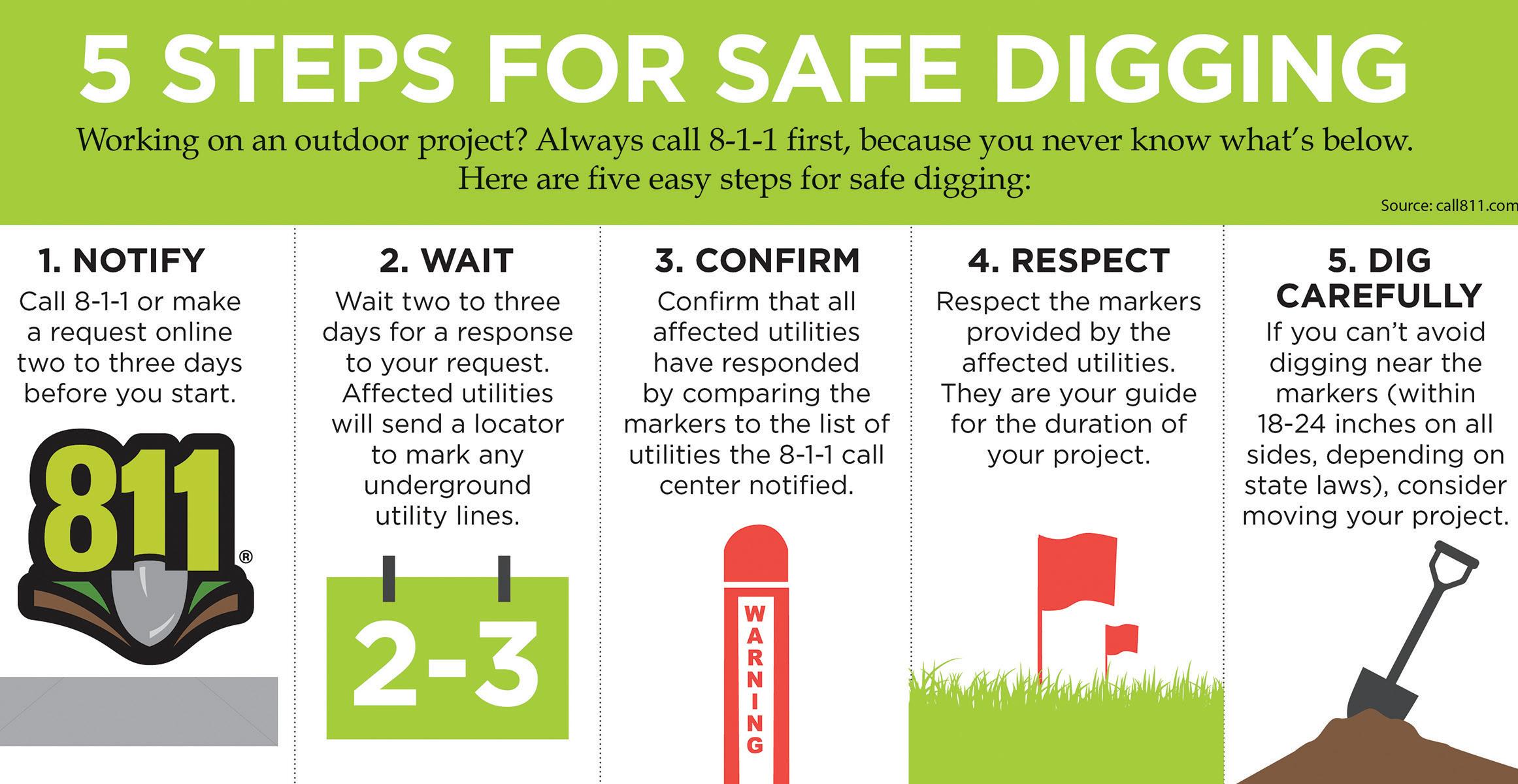
3 minute read
Your Electric Co-op
Chief Executive Officer Mario Romero Cloudcroft Office 404 Burro Avenue • P.O. Box 227 Cloudcroft, NM 88317 575-682-2521 Carrizozo Office 507 Twelfth Street • P. O. Box 669 Carrizozo, NM 88301 575-648-2352 Alto Office 1135 Hwy. 48 • P.O. Box 1135 Alto, NM 88312 575-336-4550 Emergency and Outages 800-548-4660 Fax • 575-682-3109 Website • www.ocec-inc.com Office Hours 8:00 a.m.–5:00 p.m. (M-F) Board of Trustees President Charles Mulcock, SE District Vice President Denny Burnett, SE District Secretary Marty Mills, Central District Treasurer Scott Shafer, NW District Russell Bell, SW District Bill Bird, NE District Cheri Hass, Central District David Powers, NE District Tim Rabon, SW District Preston Stone, NW District Board Meeting The Board of Trustees meets the third Friday of the month at 9:00 a.m. at the Cooperative.
Remember to #ThankALineworker on April 13 Lineworkers serve on the frontlines of our nation’s energy needs, and on April 13, 2020, OCEC, along with other electric cooperatives across the country, will honor the brave men and women who work hard to keep the lights on.
Line crews work around the clock, sometimes in difficult and dangerous conditions, to keep power flowing to our local communities. Whether they’re restoring power after a major storm or maintaining critical infrastructure to our electric system, lineworkers are at the heart of our co-op.
When a storm hits, they set aside their personal priorities because Mother Nature doesn’t work around holidays, vacations and birthdays. A service-oriented mentality is one of the many admirable characteristics of an electric lineworker.
OCEC is proud to honor the 18 lineworkers that maintain 2,793 miles of power lines in our service territory. We invite all co-op members to take a moment and thank a lineworker for the important work they do. On April 13, you can use #ThankALineworker on social media to show your support for the brave men and women who power our lives.
Operations on Alert During High Winds As winds begin to pick up, red-flag warnings will be issued and OCEC will put into effect fire prevention procedures. Reclosers will be set to non-reclose so breakers operate and lines stay open at the first sign of a fault to help reduce the risk of a fire being started by electrical equipment.
This precautionary measure will rely more heavily on line patrol by operations personnel and less on automated equipment, but does come with some consequences—outages may last longer and more members could be affected. OCEC asks everyone to be patient when the longer outages occur, but hope you understand that the benefits of the extra patrol time far outweigh the risks.
Planning a Yard Project? Don’t Just Dig In April is National Safe Digging Month. It reminds us all that as we begin beautifying our yards, we shouldn’t just dig in. According to 811, the “Call Before You Dig” national hotline, an underground utility is damaged every nine minutes because someone didn’t call before digging.
Whether it is a do-it-yourself project or you are hiring a professional, call 811 or your state’s utility locating service two to three days prior to starting any digging project to request that all underground utilities be marked. (Call-tocompletion time varies from state to state.) The service is free.
Hitting a line could result in serious injuries and disrupted service for you and your neighbors. It could also make a dent in your wallet for repair fees or other fines.
Before digging: • Notify your state’s one-call center by calling 811 or making an online request 2-3 days before work begins. • Wait the required amount of time for affected utility operators to respond to your request. • Confirm that all affected utility operators have responded to your request and marked underground utilities. • Dig carefully around the marks with care.
Remember that privately owned underground lines will NOT be marked by location flaggers. Examples of private lines/equipment include well and septic, underground sprinkler systems, invisible fencing, gas or electric lines that serve a detached building, as well as any lines (electric, water, sewer) from the meter to your home.











